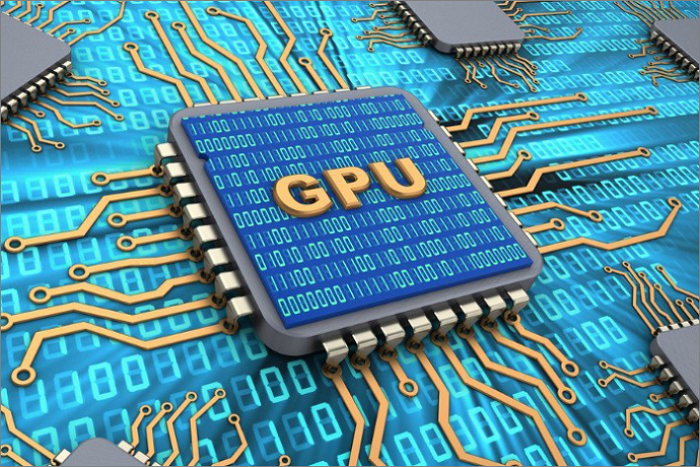GPU vs CPU? What's the Difference? Which Is Better?
If you've worked with computers before, you might have encountered the discussion of GPU vs. CPU. What is the difference between the two terms, and which one among them is better? Computers rely upon GPU and CPU to perform different functions, and sometimes the two complement each other.
This article will define GPU and CPU and outline their advantages and disadvantages. We'll also outline how the two work together to perform various computer functions.
What Is a Graphical Processing Unit (GPU)?

GPU is a computer processor that performs graphical and imaging tasks based on given mathematical calculations. If you view any images or graphics on your computer, tablet, or smartphone, the GPU is responsible for this. Although most computers come with 3D graphics, they need the functions of a GPU to process these graphics much faster and in a better way.
A GPU is also important during video editing since it allows one to work on complex animations without affecting other computer processes. To ensure your computer's CPU doesn't slow down, GPU uses a "parallel processing" feature, where multiple processors work on different parts of a task concurrently.
What Is a Central Processing Unit (CPU)?

The CPU also called the "central processor" or "microprocessor," is a computer unit tasked with most processing activities. The CPU works on specific computer instructions from both hardware and software to give the desired results (output). It's loosely referred to as the "brain" of the computer since it performs complex mathematical calculations to handle different tasks efficiently.
The CPU performs its functions efficiently with the help of the ALU (arithmetic logic unit) and CU (control unit). The control unit manages all processing operations, while the ALU performs all mathematical and logical functions. In addition to the ALU and CU, the CPU works concurrently with the main memory to fetch instructions for specific tasks and store results.
GPU vs. CPU: What Is the Difference?
Although people sometimes take GPU and CPU to mean the same thing, the two are different. Below is a comparison table outlining the differences between GPU and CPU.
Differences Between GPU vs. CPU
| GPU | CPU |
|---|---|
| -It's perfect for parallel processing | -Good for serial processing |
| -Has a high throughput | -Has a low latency |
| -Only performs 3D graphics processing | -Can perform a wide range of processing activities |
| -Requires less memory space compared to CPU | -Requires a large memory space compared to GPU |
| -Is faster than the CPU | -Is slower than GPU since it performs several tasks |
| -Has 100s or 1000s of cores | -The CPU has 4-8 cores |
Advantages and Disadvantages of GPU
The GPU comes with several advantages and disadvantages, including the following:
Advantages of GPU
- High data throughput since it comprises 100s of cores that work on different parts of the same task simultaneously.
- Performs extensive calculations through parallel computing.
- Has a high computation power that makes it useful for bitcoin mining.
- Useful in machine learning when generating deep-learning algorithms.
- GPUs are suited for analytics programs in the field of data science.
Disadvantages of GPU
- It's considered more expensive than a CPU.
- It isn't suited for multitasking and hence not suitable for general-purpose computing.
- It struggles to handle complex tasks due to its limited power and complexity.
Advantages and Disadvantages of CPU
As the brain of the computer, the CPU comes with the following advantages and disadvantages, including the following:
Advantages of CPU
- Has high flexibility to handle a variety of tasks.
- Outperforms the GPU due to its high contextual power.
- It has access to large memory space and can handle more tasks concurrently.
- Has a high precision in performing complex computational tasks.
- It is cost-effective and readily available.
Disadvantages of CPU
- Not good in parallel processing; hence cannot handle large tasks that require millions of similar operations.
- There is also slow evolution in the development of CPUs.
- Not compatible with all systems or software, i.e., an application meant for an x86 Intel Processor won't run on an ARM processor.
How CPU and GPU Work Together
CPU and GPU work together to increase data throughput and concurrent calculations for a given application. Although GPU initially supported only computer images and graphics, you can also use it to enhance the CPU speed entailing large amounts of data. GPU can complement the CPU architecture by running repetitive calculations in parallel while the rest of the activities run in series on the CPU.
This, in turn, increases the processing speed of the CPU. Also, GPU and CPU work together in that the former runs specialized mathematical tasks while the latter coordinates a wide range of activities running concurrently in the computer. Since GPU supports parallelism, it helps the CPU perform more tasks within the same time frame.
Final Words
This article has compared GPU vs. CPU and outlined their differences. GPU is good for parallel processing, while CPU is perfect for serial processing. Although the two perform different functions, they can also work together to achieve the same objective of improving the overall performance of your computer.
GPU can help improve the performance of the CPU by taking up extra tasks and processing them in a parallel fashion to save time and resources. The main advantage of the CPU is that it's highly flexible in handling various tasks, while the GPU has a high data throughput.
Related Articles
- Rollback from Windows 11 to Windows 10 - 2 Methods
- What Is MIMO? Multiple-Input Multiple-Output Explained
- Complete Guide to Windows Internet Name Service (WINS)
- One PC Plays as Two: How to Dual Boot Windows 11 with Windows 10 Together